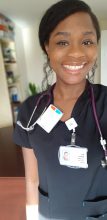
I graduated medical school right in the middle of a pandemic. As you probably know, this meant that some of us, myself included, got the chance to do an interim foundation post before starting our proper training program. Now, I am in my third (technically fourth) post as a doctor and thought I would share some useful things I wish I had known as a student.
Choosing my Rotations
The job of a foundation doctor is essentially the same regardless of the hospital or speciality you pick. I personally picked my rotations (urology, cardiology and AMU) based on the specialities I was most interested in. I am glad I did it this way because I got to see first-hand what the job entailed on a day-to-day basis from trainee to consultant level. Others picked based on location of the placement, opportunities the hospital had or all three. Personally, I was not bothered about my location. However, looking back now, I would have still done the same thing, but maybe picked an area closer to home or a city I wanted to spend time in.
Doing the Job
The first couple of weeks was challenging. I was in a position where I had to look after patients, without the protection of still being a student. Furthermore, adjusting to how hospitals work and how to do my job and organise myself. One piece of advice I would give is to know that this is normal. If you ever feel unsure or uncertain, ask people for help. With time, your confidence will grow and you will find a method that works for you. As a medical student, whatever rotation you are attached to, ask if you can follow one patient through from admission to discharge, under the supervision of the other doctors. I had this and I found the transition less daunting because of it. It took me weeks to get into a routine that worked for me. And to be fair, I still learn about new systems and pathways every day.
I actually prefer being a doctor to being a student personally because I have proper hands-on experience. Furthermore, I don’t have exams for an entire year, which meant when I went home, I left my work at the hospital.
On-call days were always a worry for me. One useful thing I learned is that on-call shifts are meant to deal with urgent situations. This helped me navigate through what needs to be done now and later.
Know the common diseases (like sepsis) and their treatment like the back-of-your hand; practice prescribing common drugs e.g. paracetamol and do a good A to E assessment. These skills are invaluable. Furthermore, whenever you see a patient on your own and you feel something is not right, chances are it is not and ask for help. You have quite literally begun your medical career. Remember in the past the foundation year one used to be part of medical school! Also apps like Microguide and BNF are very useful to have. Plus, the Induction app, which is an official directory of each hospital is useful.
Career Influence
My training has also influenced my career goal. Seeing first-hand what the foundation doctors do, their work schedule and what patient clientele they see regularly was useful. For example, being in AMU made me realise how much I really like continuity of care, something you see less in acute specialities.
Final Point
E-portfolio – don’t forget that this is key to you actually passing foundation year. Start early and be creative in the way you complete this. Just remember you`ve just started. Your aim is to use this time to build your skills on being a good doctor. The most dangerous doctor are often the ones who are dangerously confident or handle things alone that is beyond their competence. Otherwise, make the most of this experience!
